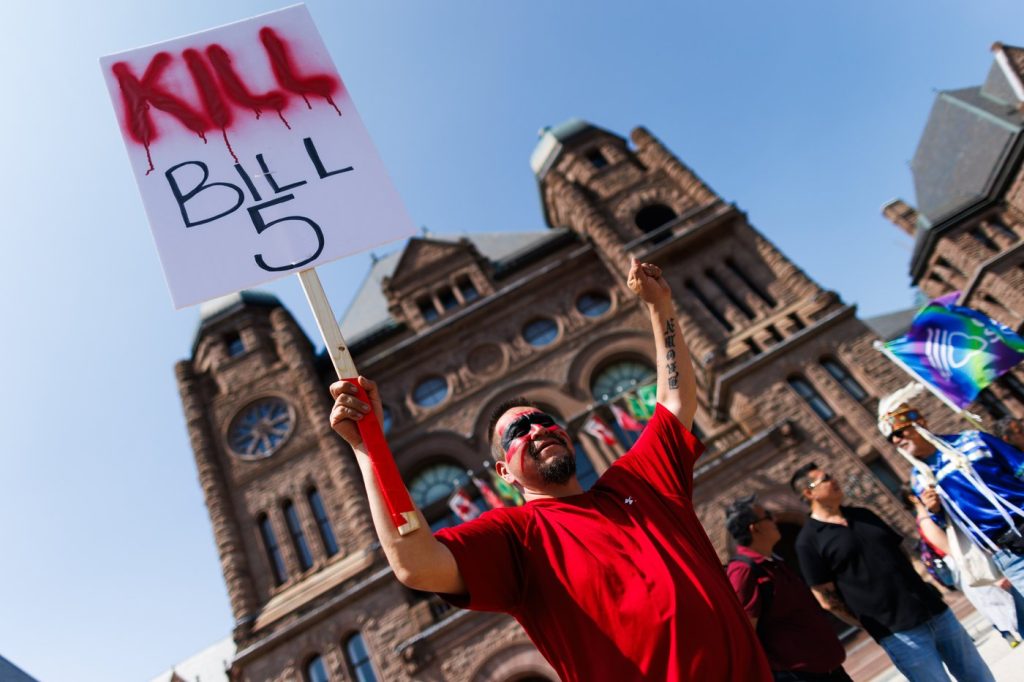TORONTO - Ontario Premier Doug Ford's government is poised to pass a contentious mining legislation today, officially known as Bill 5. This new law grants the provincial government the authority to suspend both provincial and municipal regulations for specific projects identified as having significant economic value.
The proposal has ignited a fierce backlash from First Nations communities, who claim that the bill undermines their rights and disregards their concerns. Leaders from these communities have issued warnings that they may resort to blockading roads and railways as a form of protest against the legislation.
In response to these potential protests, Premier Ford remarked that such actions would not be "very wise." He emphasized that any illegal actions would be met with appropriate enforcement, although he clarified that he does not directly oversee police actions. Enforcement decisions would fall to the Ontario Provincial Police or local police services.
As the legislative process unfolds, there are questions about the constitutionality of Bill 5. Should the bill face legal challenges and be deemed unconstitutional, Ford refrained from confirming whether he would invoke the notwithstanding clause to preserve the law, stating that he would "cross that bridge" when necessary.
The Ford administration is moving swiftly to advance the bill, limiting opportunities for debate during the third reading. Although opposition parties have attempted to delay the bill during the committee stage, it is projected to return to the legislature for a final vote today.
This development is part of a broader controversy regarding resource extraction and Indigenous rights in Canada, reflecting ongoing tensions between economic interests and the rights of First Nations. The bill's fast-tracked approval process has raised concerns about transparency and public participation, as many stakeholders are advocating for a more inclusive decision-making process.
The Canadian Press initially reported on this story on June 4, 2025. The implications of this legislation are vast, as it may set a precedent for future resource extraction initiatives and how they intersect with Indigenous rights and local governance.
Recent demonstrations have seen protesters, including community members, gather at Queen's Park in Toronto, voicing their opposition to Bill 5. Speakers at these demonstrations have been rallying support to challenge the government's approach to the proposed mining law.
As the situation evolves, the relationship between Ford's government and First Nations communities remains under scrutiny, particularly regarding how economic development is balanced with Indigenous rights and environmental stewardship.
Overall, Bill 5 represents a significant shift in Ontario’s legislative landscape, promising to impact various stakeholders, including Indigenous groups, local governments, and the broader public concerned about environmental and economic implications.











